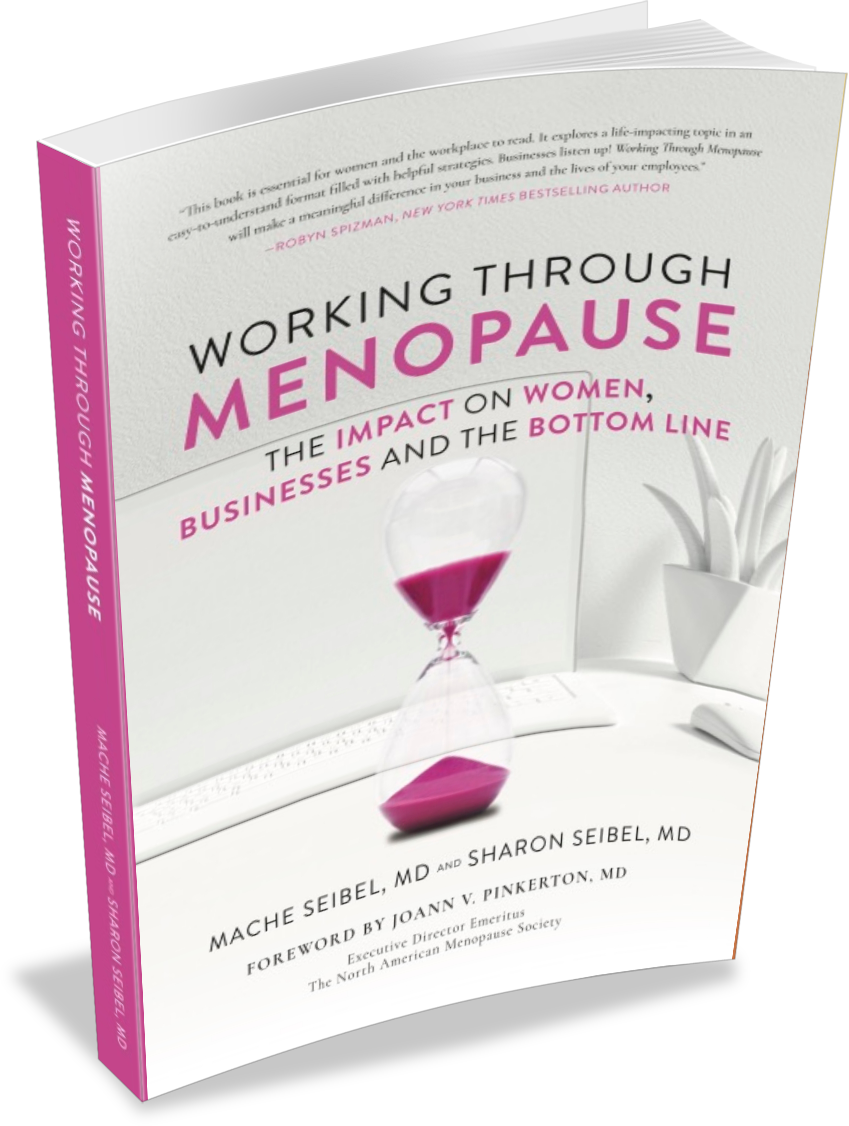A March 2022 article in the British publication The House asked this very question.
They found that a lack of workplace support for menopause symptoms is ruining women’s careers. Sadly, many feel forced to reject promotions or even leave the workforce entirely. And that is not only bad for women; it’s bad for businesses.
The lack of support of menopause symptoms in the workplace was the basis for my new book Working Through Menopause: The Impact on Women, Businesses and The Bottom Line.

New Book for Business Woman and Businesses
As you can imagine, hot flashes, heart palpitations, foggy memory, irritability and poor sleep don’t just happen at home…they also happen at work. And the consequences are not only extremely uncomfortable; they are downright embarrassing. Added to this is the fact that menopause is a taboo topic in the workplace. Employers don’t ask about it; women don’t tell their employers about it. So nothing gets done to make the workplace better. Women fear that since nothing is said at work about menopause symptoms, it must be bad if you have them. But adequate treatment and workplace support could make a huge difference.
Menopause symptoms at work aren’t rare. Roughly one-fourth of the entire workforce, half of all working women, are either in perimenopause or menopause.
In the UK, about ten percent of businesses have some type of menopause policy. In contrast, in the United States only about one percent of businesses have any type of menopause policy. As the article in The House pointed out, a woman named Samantha went to her safeguarding officer at work complaining of a lack of support for her menopause symptoms and was told to “dial down the behavior.” She was eventually fired and her menopause symptoms were completely dismissed as contributing to the events in question.
Studies have shown that sixty percent of women feel their work is negatively affected by their menopause symptoms.
Sadly, Samantha’s experience is not unusual. A survey by Bupa and the Chartered Institute for Personnel and Development found that three in five menopausal women were negatively impacted at work. All of this is really a reflection of ageism and sexism and should be addressed in a formal way. This is supported by a poll by Dr. Louise Newson of 3,800 women who found that “one in five passed on the chance to go for a promotion they would otherwise have considered.” The report goes on to say that, “nearly twenty percent reduced their hours, and twelve percent resigned due to menopause symptoms.”
Since many women are reaching their peak work potential at about the same time they enter perimenopause and menopause (ages 45 to 55) this contributes to women not having the opportunity to make nearly as major an impact as they could, and contributes to poor job retention in the workplace, more loss of work, and greater costs to companies.
While natural menopause is a natural event and not considered a disability, it certainly deserves support just like any other physical condition. However, early menopause (going into menopause before age 45, which occurs in 5-10 percent of women), and premature menopause (going into menopause before age 40 and occurring in approximately one percent of women), may be considered a disability.
Women are living longer and working longer. Addressing their menopause symptoms is a very cost-effective thing every business should do. These and many more considerations for both women and business are outlined in the new book, Working Through Menopause: The Impact on Women, Businesses and The Bottom Line. Click Here to get your copy.
Interested in having Dr. Mache speak to your audience on this topic? Contact him at https://drmache.com/contact-us/.
